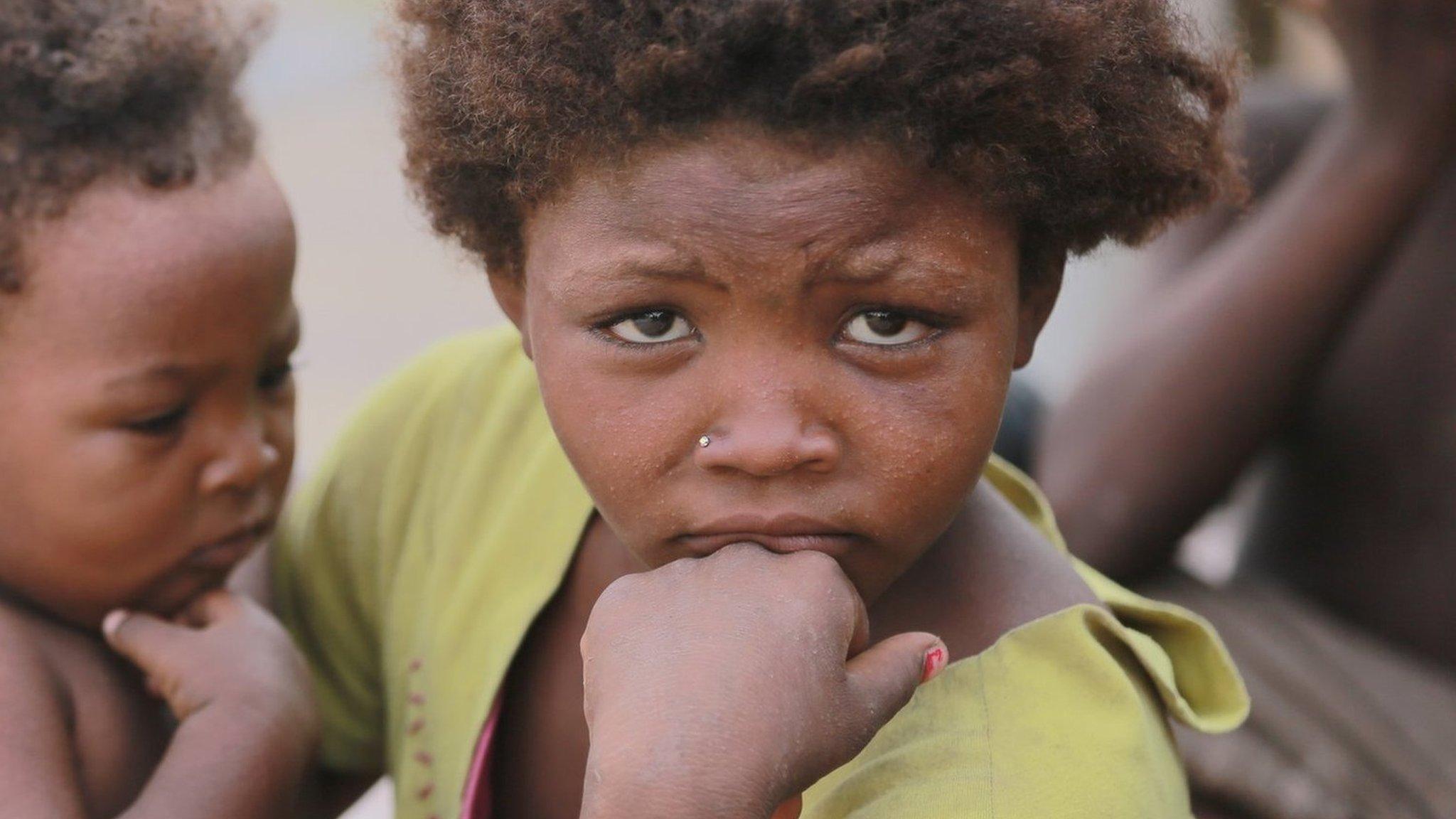Yemen war: Government troops 'capture Hudaydah airport'
- Published
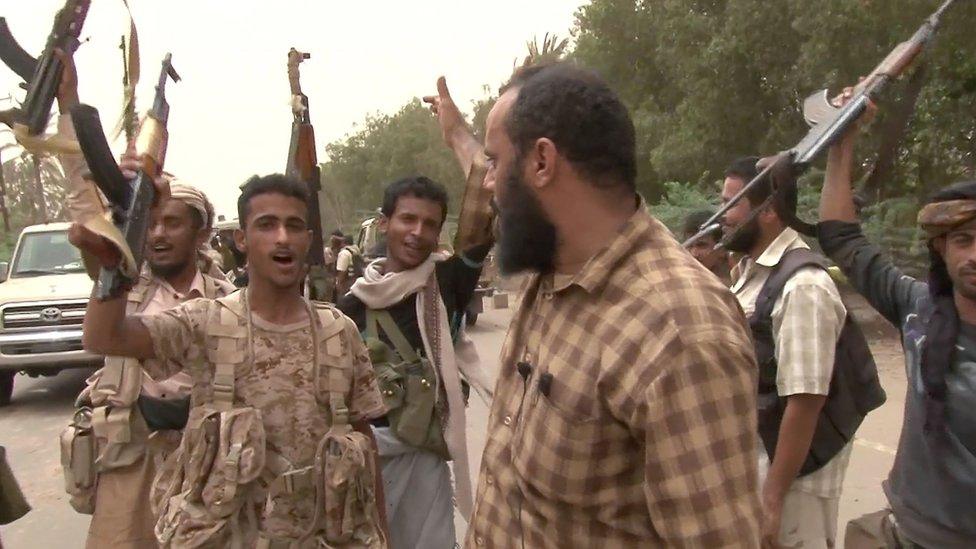
Government forces have said they will not attack the port of Hudaydah
Yemeni forces backed by a Saudi-led coalition say they have captured the airport of the main port city of Hudaydah from Houthi rebels.
The military said engineers were now checking the surrounding area for mines.
However, the Houthi-controlled Saba news agency denied the airport had been lost and some reports suggest clashes there are continuing.
The port is seen as a lifeline for millions of Yemenis at risk of famine.
Hudaydah is the only major port controlled by the Houthis.
UN special envoy Martin Griffiths arrived in the capital Sanaa on Saturday for emergency talks on the situation at the port, AFP reported.
He is expected to propose to the Houthis, who control Sanaa, that they cede control of Hudaydah to a UN-supervised committee to avoid further fighting.
The Hudaydah offensive, which is being directed by the United Arab Emirates, began on Wednesday.
AFP news agency quotes medical and military sources as saying at least 139 combatants have been killed, while Houthi news sources say more than 50 pro-government forces have been killed.
The government has said it will not attack the port and will seek to preserve key infrastructure.
Meanwhile UAE military sources say a major force of Yemeni, UAE and Sudanese troops is on standby in Eritrea to take part in a final effort to capture Hudaydah.
Quoted by Reuters, the media office of the Yemeni military said on Twitter: "Army forces backed by the resistance and the Arab alliance freed Hudaydah international airport from the grip of the Houthi militia."
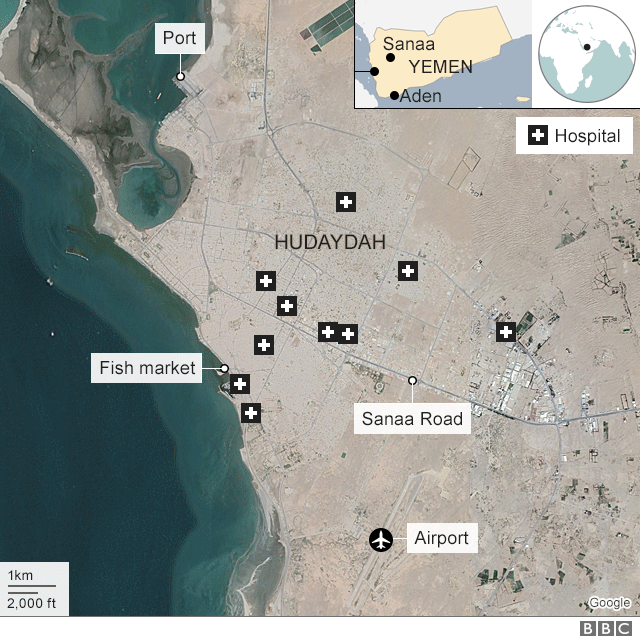

Yemen has been devastated by a conflict that escalated in early 2015, when the Houthis seized control of much of the west of the country, including the capital Sanaa, and forced President Abdrabbuh Mansour Hadi to flee abroad.
Alarmed by the rise of a group they saw as an Iranian proxy, Saudi Arabia and eight other Arab states intervened in an attempt to restore Mr Hadi's government.

Learn more about Yemen's war

Almost 10,000 people - two-thirds of them civilians - have been killed and 55,000 others injured in the fighting, according to the United Nations.
The conflict and a partial blockade by the coalition have also left 22 million people in need of humanitarian aid, created the world's largest food emergency, and led to a cholera outbreak that is thought to have killed 2,290 people.
Yemeni forces backed by a Saudi-led coalition of Gulf states began their assault on Wednesday
The International Committee of the Red Cross (ICRC) said it expected tens of thousands of people to flee the city in the coming days. Those who planned to stay were stocking up on food and fuel in anticipation of a siege, it added.
Aly Omar told Reuters that he and his family had spent three days trapped by fighting in the Manzar neighbourhood next to the airport.
"We didn't have any food, or drink or anything, not even water," Mr Omar said in hospital on Friday night where his son was being treated after being wounded in an air strike.
"I call on the United Nations and the Red Cross to open a way for us to get out of the situation we're in. Our kids, women and elderly are stuck."
In addition to being one of Yemen's most densely populated areas, with an estimated population of 600,000, Hudaydah is the single most important point of entry in Yemen for the food and basic supplies needed to prevent a famine.
The UN has warned that in a worst-case scenario, the battle for the city could cost up to 250,000 lives, as well as cut off aid supplies to millions of people elsewhere.
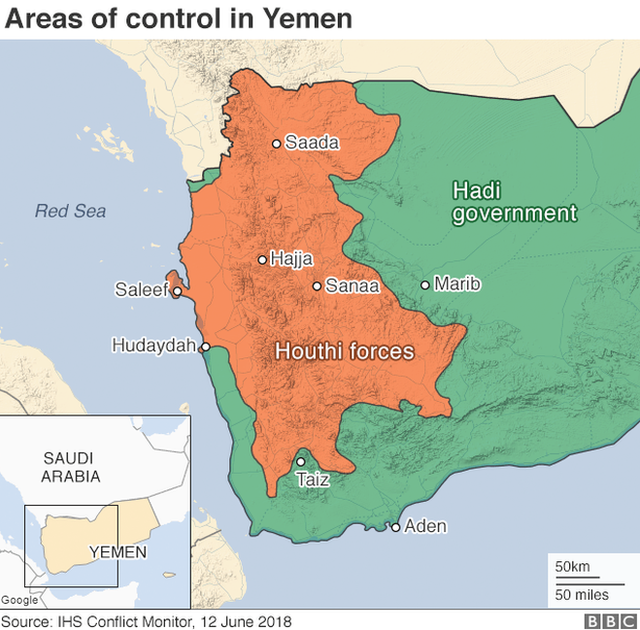

- Published15 June 2018
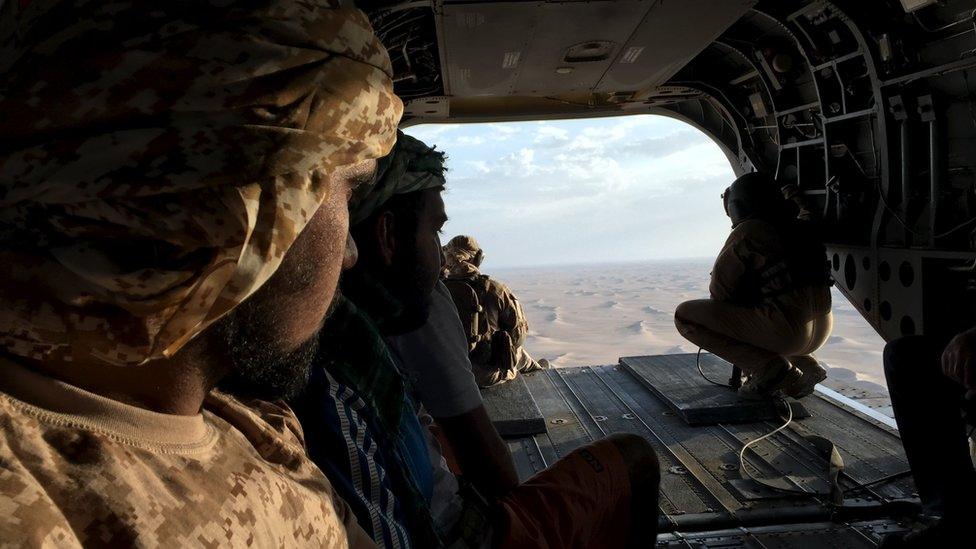
- Published13 June 2018
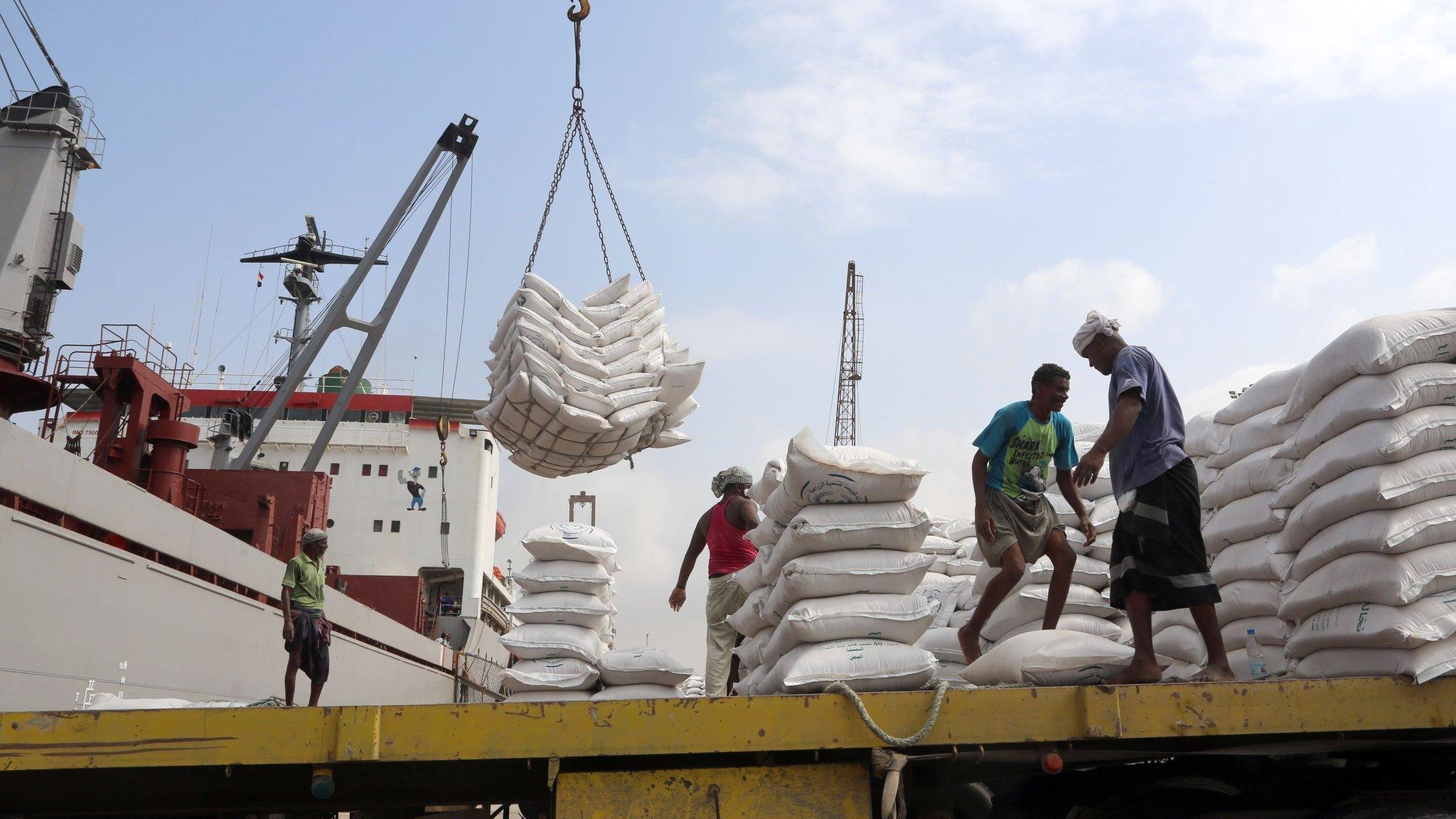
- Published13 June 2018
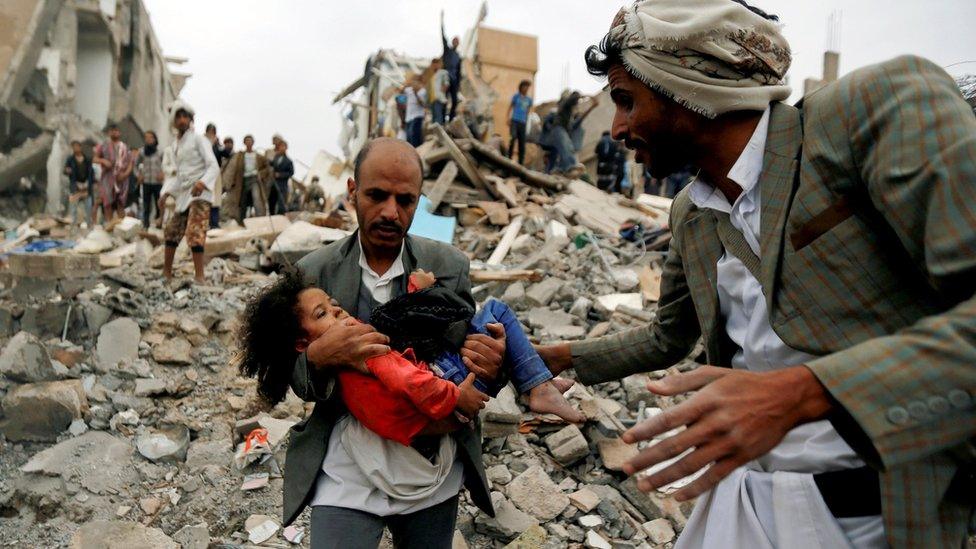
- Published9 November 2017
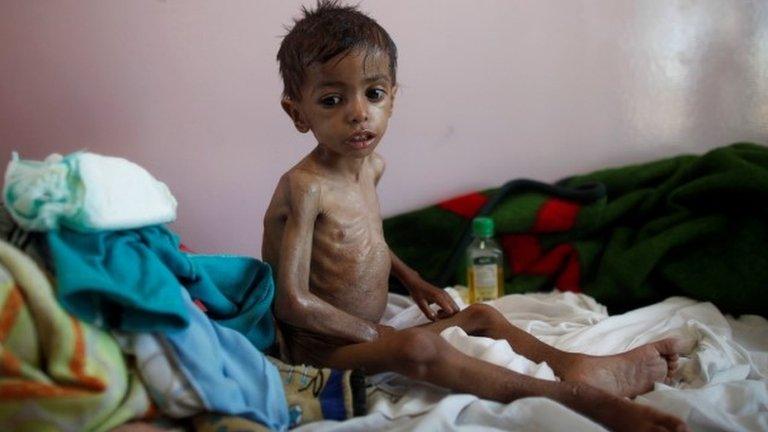
- Published23 August 2017
